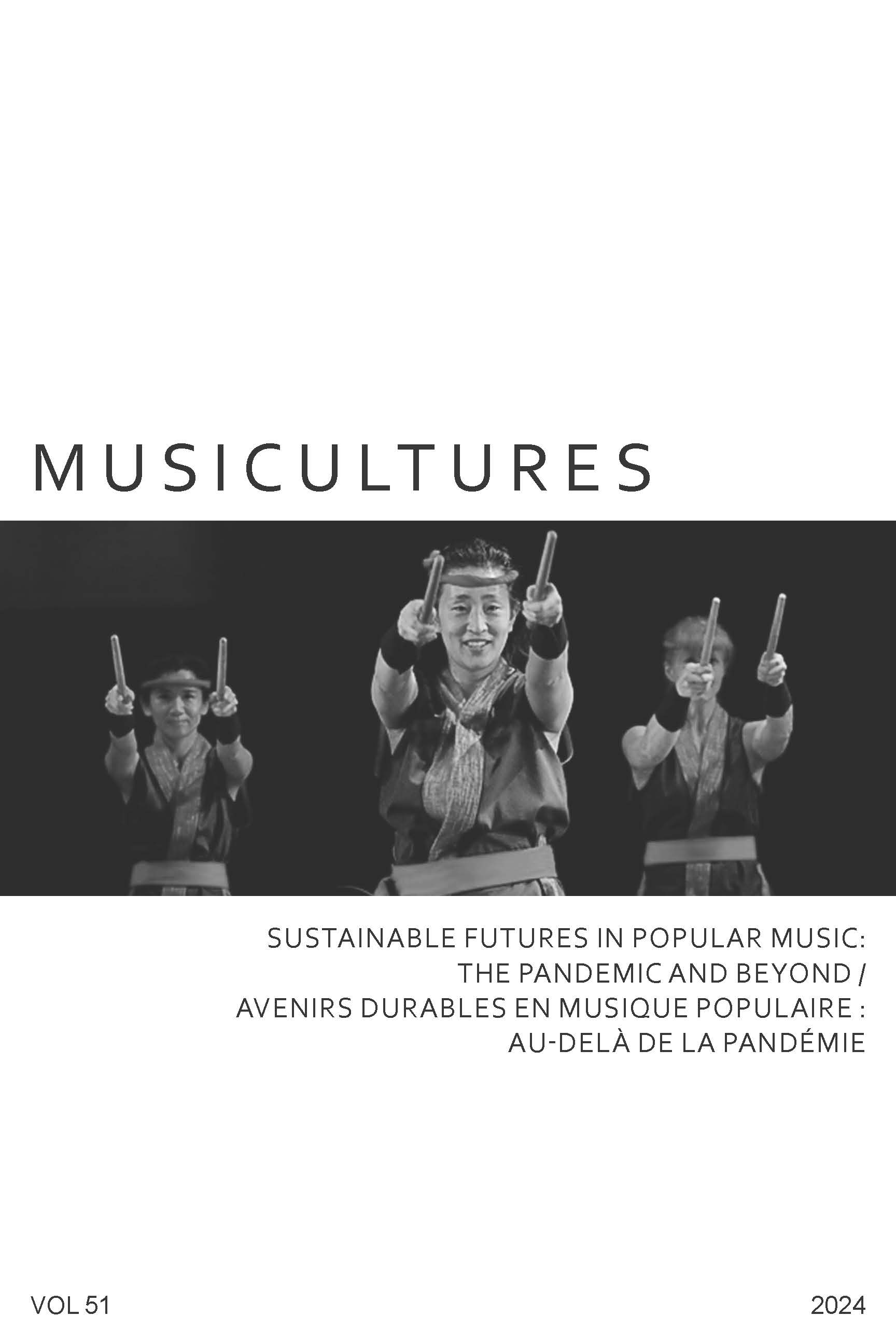Abstract
Busking can produce positive atmospheres in public spaces through diverse social relations that, in addition to the music itself, can contribute to a sense of wellbeing among the urban populace. The COVID-19 pandemic highlighted the value of music and live performances in terms of their positive impact on well-being. This article analyzes the situation of buskers during the pandemic and gives insight into their subjective realities. Using the example of New York musician Colin Huggins, known as “the piano man of Washington Square Park,” the author highlights buskers’ dependence on governmental and societal support to sustain both well-being and music cultures in public spaces.
- The author retains copyright over the work.
- The author grants the journal owner (The Canadian Society for Traditional Music / La Société canadienne pour les traditions musicales) an exclusive license to publish the work.
- The author may post a pre-print or post-print version of the work (see definitions below) on a personal website for up to twelve months after the work is published in MUSICultures. After twelve months, the pre-print version must be replaced with the published version.
- The author may deposit the published PDF of the work in a non-commercial online repository twelve months after the work is published in MUSICultures, or any time thereafter.
- Any such deposit must include a link to the work on the MUSICultures website, e.g., https://journals.lib.unb.ca/index.php/MC/article/view/19996
A pre-print is a work-in-progress—a contribution not yet accepted, or perhaps even submitted, to MUSICultures.
A post-print is the version of a contribution after peer review and acceptance by MUSICultures, with revisions completed.
The published version is the PDF file of a contribution as it appears in MUSICultures.
Please note that academia.edu and ResearchGate.com are both for-profit repositories; authors may not deposit the published PDF of the work in these repositories until after the journal’s embargo period.
For permission to reprint or translate material from MUSICultures, please contact Heather Sparling, General Editor of MUSICultures (heather_sparling@cbu.ca).

